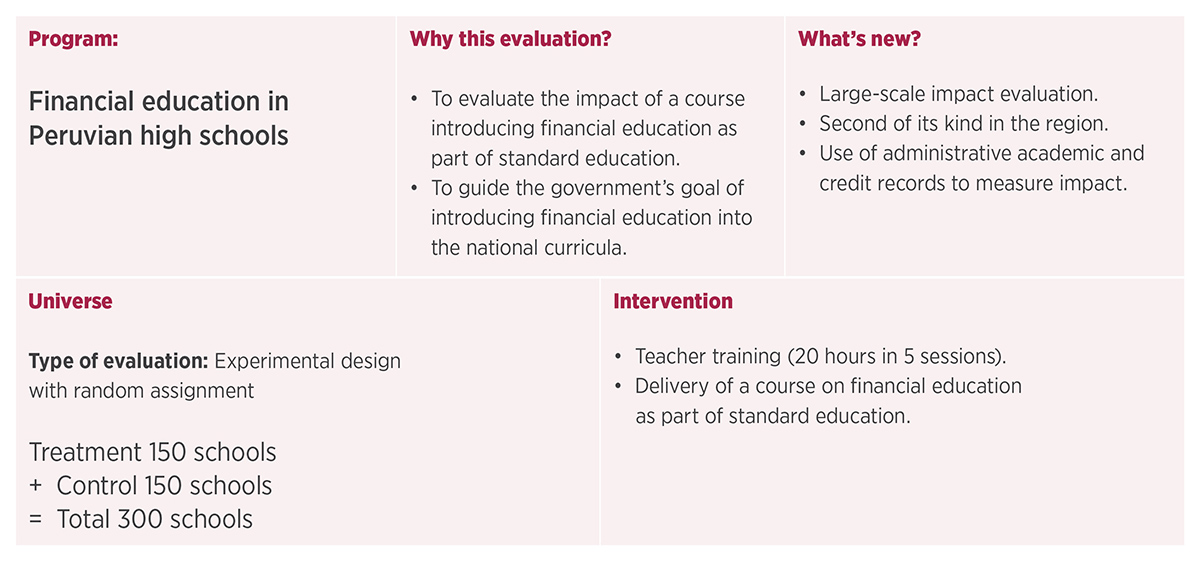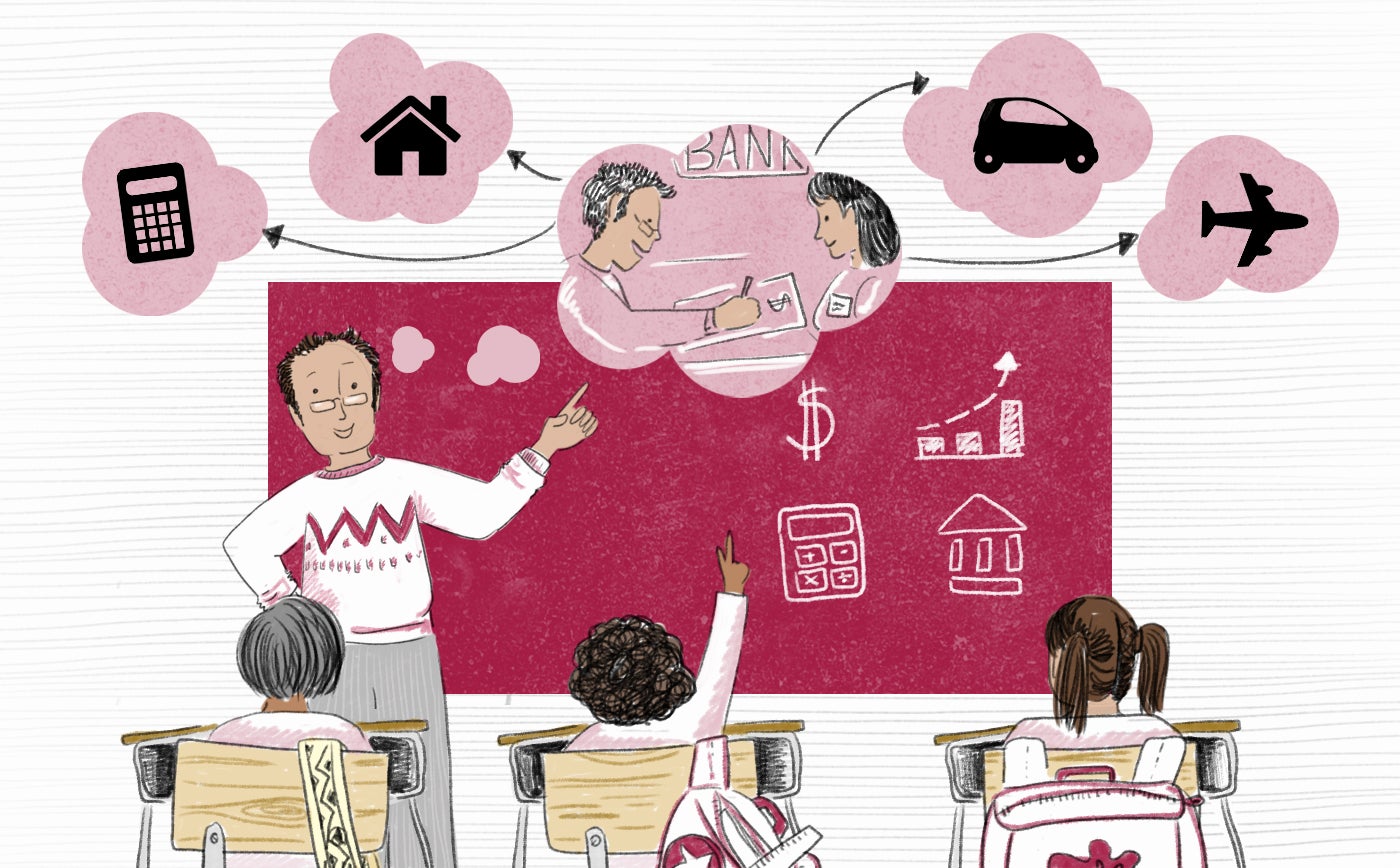Financial education programs often work for young people. But when targeting adults, attendance rates tend to plummet and old habits creep back in. Learning about finance is key to financial inclusion. So how can we better reach adults and transform their financial habits?
Among youth, hands-on learning strategies are at least as successful as lectures. But we still know very little about the impact of alternative training strategies among adults.
A recent impact evaluation conducted by the IDB provides lessons to be learned from Peru.
Relying on a large-scale experimental design, the IDB evaluated the impact of a school-based financial education program on both high school students and their teachers. Beyond the great impact registered on students’ financial skills, results show that teachers exponentially benefited from exposure to the program as well.

By getting trained in the content as well as delivering lessons in classrooms, high school teachers in Peru were able to improve their financial skills considerably.
The impact registered on teachers’ financial behavior is even more impressive as they increased their preference for formal financial services, such as formal savings accounts and bank loans on the one hand, they were 10% more likely to save and 22% more likely to save formally after a semester of teaching financial education in the classroom.
On the other hand, administrative records from the largest private credit bureau in the country show a long-lasting effect on teachers’ credit outcomes. Almost two years after the implementation of the pilot, the probability of getting a bank loan increases by 13%, despite a null effect on access to credit in general. Teachers also reduce other miscalculations such as falling behind on loan payments.

Although high school teachers in Peru are not representative of the average adult in the region, these results can still shed light on alternative ways to deliver financial education to adults.
The impressive sustained impact on financial behavior registered among teachers suggest that adults may learn more by teaching others than by listening to a lecture.
After all, as adults we become less malleable and our old habits often tend to stick around.
To learn more about IDB Group’s impact evaluations download the 2019 Development Effectiveness Overview Report.


Leave a Reply